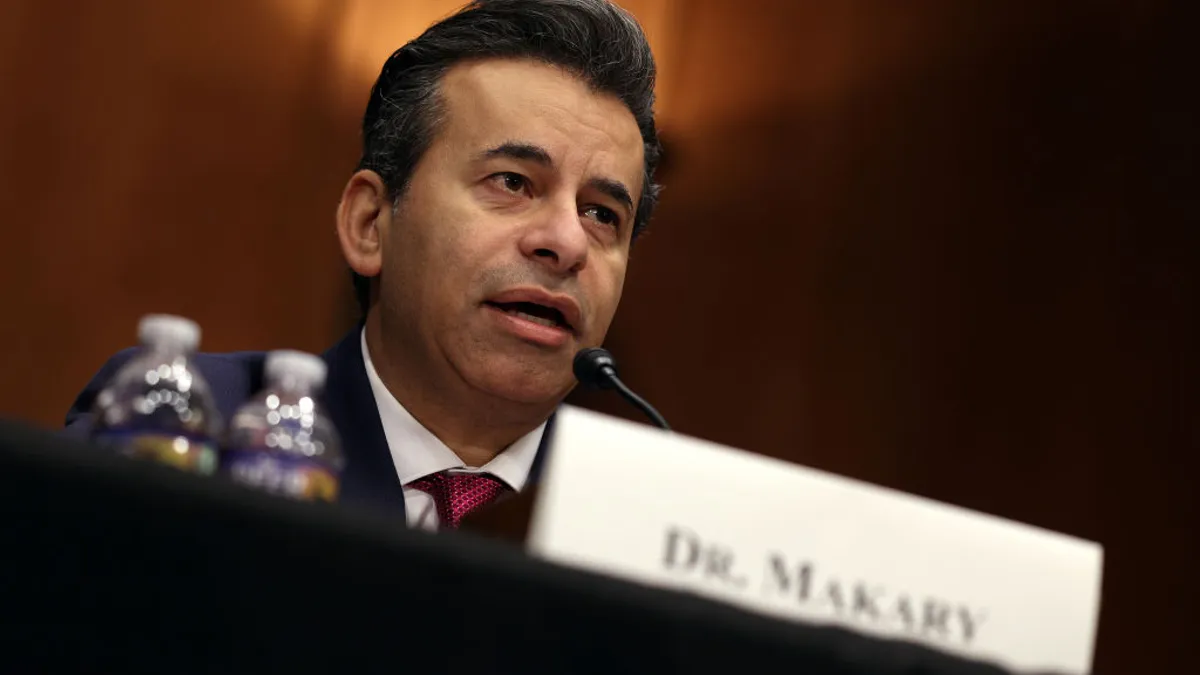The Food and Drug Administration is changing how it reviews new COVID-19 vaccines, setting out stricter standards in place of the framework it used to quickly clear updated boosters for all adults the past few years.
The new guidelines were revealed Tuesday in a paper published in The New England Journal of Medicine and co-authored by commissioner Martin Makary and top vaccine official Vinay Prasad. In that paper, Makary and Prasad rejected the existing framework as the world's "most aggressive" and outlined age- and risk-based recommendations instead.
The new plan Makary and Prasad devised will allow for immunogenicity data, or proof vaccination spurs production of protective antibodies, as the basis for clearing COVID shots for adults over 65 or people at least 6 months of age who have health issues that put them at high risk for severe COVID-19.
For healthy children and adults, though, the agency expects developers to provide randomized, placebo-controlled data evaluating clinical outcomes before granting an approval. When possible, it will also encourage developers that have won clearances in high-risk groups to run these types of rigorous trials in healthy people as a postmarketing requirement. The FDA recently did so in granting a full approval to a COVID shot from Novavax, for example.
The FDA envisions studies designed to prove booster shots can reduce the risk of symptomatic disease, with "special attention" paid to effects on severe disease, hospitalization and death, they wrote.
Makary and Prasad are scheduled to discuss the new plan at a town hall meeting Tuesday afternoon, ahead of a Thursday meeting among agency advisers to discuss updating the formula of COVID-19 vaccines before the fall and winter seasons.
Since COVID boosters were first developed, the FDA has adopted similar approval guidelines to what’s used to update yearly flu shots. In those cases, boosters are designed to match specific, currently circulating strains, and then approved and widely recommended based on their ability to generate an immune response against those variants.
This framework is designed to help combat viral threats like influenza and the coronavirus as they mutate and evolve. However, Makary and Prasad argued COVID is “distinct” from influenza, and that a "one-size-fits-all" approach isn't backed up by the available evidence.
In their paper, Makary and Prasad said the benefit of repeat COVID vaccine doses — especially among healthy people who may have previously received multiple shots — is uncertain. They also argued Americans are "unconvinced" COVID boosters are helpful, citing data from the Centers for Disease Control and Prevention showing that less than one-quarter of the population have been boosted each year.
Skepticism regarding COVID boosters may be eroding public trust in vaccination in general, causing reluctance affecting "even vital immunization programs" like the MMR shot, which they described as "safe and highly effective."
The new philosophy represents “a balance of regulatory flexibility and a commitment to gold-standard science,” Makary and Prasad wrote. “These new trials will provide information that is desperately craved by health care providers and the American people.”
Advisers to the CDC hinted at changing their recommendations at a meeting in April. They’re expected to vote on new recommendations in June. Typically, the CDC provides specific use recommendations for vaccines approved by the FDA.














